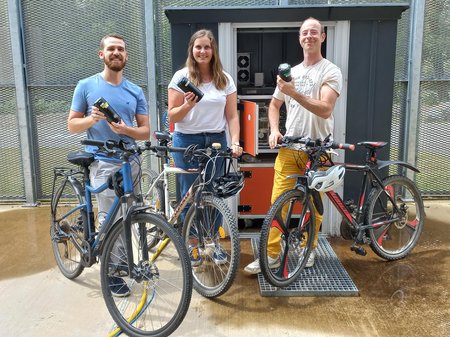Regulations create markets
Our society has decided to harmonize its economic activities with climate protection measures. It does this primarily through legislation. In recent years, there have been numerous regulatory innovations within the European Union, e.g. the Sustainability Reporting Directive or the EU Taxonomy. Initially, these laws mainly concerned the reporting obligations of large companies. The latest wave of legislation has a more substantial impact on markets: changed cost structures due to the expiry of the free allocation of CO2 emission allowances from 2026 onwards, changed liabilities due to the Supply Chain Act, ecological limits for products still to be negotiated due to the new Ecodesign Regulation. These laws can make ecological and social innovations economically viable in a short space of time. In addition, the Net-Zero Industry Act or the new Industrial Emissions Directive promote the growth of entire green tech markets through access to capital or their own approval procedures.
Under the leadership of Bernhard Bergmair, SAL is initiating a collaborative project in which Austrian companies are jointly expanding their knowledge of these laws in order to align their innovation strategies accordingly and turn regulatory knowledge into a competitive advantage.
“Climate fit” for the future
“One of the main objectives of environmental regulations is to strengthen sustainable technologies and innovations and make them competitive,” says Bernhard Bergmair "Companies often see these regulations as nothing more than a threat and a bureaucratic burden that has to be managed by sustainability and compliance departments. This cannot be dismissed out of hand In innovation departments, however, these regulations can provide a decisive information advantage regarding future market conditions.
The SAL-funded project will jointly identify regulatory developments and strategic opportunities, such as new differentiation options, sources of funding and viable business models. Through the combined knowledge of several companies, the involvement of external experts and - last but not least - shared costs, growth opportunities can be identified faster, cheaper and more comprehensively. SAL invites interested companies to become part of this group of pioneers.
Interdisciplinary perspective is key
At the same time, SAL is promoting a PhD position as part of the CRYSTALLINE program on the topic of “Regulation-Enabled Innovation”. The position enables the connection to experts from innovation management, environmental systems science and public law. Based on an analysis of current and planned regulations, the effects on markets and new innovation paths will be identified and examined using case studies of companies in the electronics industry. Applications for international students are still possible until November 3, 2024.
About Bergmair
Dr. Bernhard Bergmair has been coordinating sustainability research topics at SAL since March 2024. From 2022 to 2024, he worked at the strategic interface between sustainability and technology consulting at a global IT service provider. Prior to that, he led several collaborative open foresight projects in which innovation strategists from various industries jointly developed future business opportunities and risks. He studied physics at the Vienna University of Technology.







